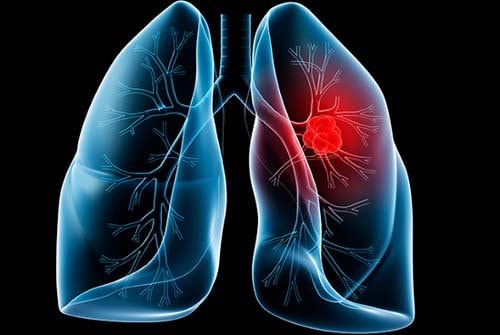Why do non-smokers still get lung cancer?
Lung cancer is one of the most common and deadliest forms of cancer in the world.
Although the disease is often associated with smoking, according to the American Cancer Society, up to 20% of people who die from lung cancer in the United States each year have never touched a cigarette.
 |
| Why do non-smokers still get lung cancer? |
And here are three ways you can develop the disease without ever touching a cigarette.
Environment
Environmental factors play an important role in lung cancer risk. According to the U.S. Environmental Protection Agency, radon gas is the leading cause of lung cancer in non-smokers.
Radon is a radioactive gas that can cause breast cancer, kidney cancer, lung cancer, etc. It is found in soil, rocks, water, building materials and natural gas. What is more dangerous is that people cannot see, taste or smell radon gas.
Radon gas causes more than 20,000 deaths each year in the United States from lung cancer. Statisticians also say that radon gas is the second leading cause of lung cancer after cigarette smoke.
It is a naturally occurring air pollutant that enters buildings through cracks and holes in the ground. As it decomposes, it produces particles that can enter the lungs, causing radiation damage.
The countermeasure is to conduct tests for radon gas concentration in the house, measuring the radon level in the air. The radon level in the air also changes by day and by season, so we often have to periodically survey and have appropriate response measures if the radon gas concentration exceeds the allowable level, which can lead to cancer.
Lifestyle
Although not smoking significantly reduces the risk of lung cancer, it is possible to inadvertently increase the risk because of lifestyle factors. For example, spending a lot of time in areas where there is "exposure" to cigarette smoke.
There is also a direct link between an unhealthy diet and lung cancer risk. The American Cancer Society says a healthy diet rich in fruits and vegetables can protect against lung cancer in both smokers and non-smokers.
Hereditary
According to the American Cancer Society, although the primary cause of lung cancer is smoking, there is also a genetic predisposition to the disease. In particular, carriers of the gene are exposed to tobacco and toxic chemicals.
According to some studies, the risk of lung cancer increases 2.7 times in people whose parents have the disease.
What people with a family history of lung cancer need to do is have a scientific lifestyle, stay away from tobacco and harmful substances that cause the disease, and have a regular annual screening schedule to screen for cancer.
According to Vietnamnet
| RELATED NEWS |
|---|
